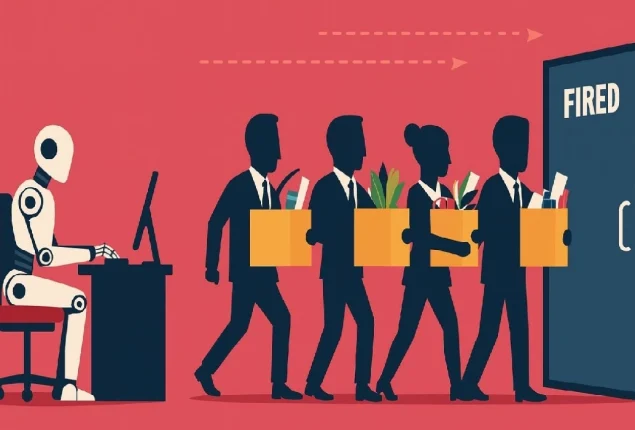
Since the start of 2025, major U.S. technology firms have significantly downsized their employee numbers. Official reports indicate that over 94,000 jobs have been eliminated as a result of the widespread adoption of artificial intelligence (AI) and automation technologies.
Industry experts highlight that this trend is particularly evident in fields such as programming, data analysis, customer support, and even creative sectors. Many companies aim to cut personnel costs and accelerate service delivery by utilizing generative AI tools.
For instance, leading tech companies are implementing advanced solutions like ChatGPT, Gemini, and Copilot to automate tasks such as coding, document creation, and customer interactions. As a result, functions traditionally performed by human teams are now completed by AI within minutes.
Businesses view these changes as a way to boost productivity, stay competitive, and reduce expenses. However, workers and trade unions criticize the trend, expressing concerns that increased automation could exacerbate social inequalities and lead to unemployment among unskilled workers.
Economists anticipate that this pattern will persist. As AI technologies evolve, many conventional job roles may become obsolete, but new opportunities are also emerging for specialists skilled in working with these advanced tools.
International organizations like the UN and the World Bank are urging governments and corporations to proactively invest in retraining and reskilling initiatives to help the workforce adapt to these technological shifts.
Read More News On
Catch all the Sci-Tech News, Trending News, Breaking News Event and Latest News Updates on The BOL News
Download The BOL News App to get the Daily News Update & Follow us on Google News.




